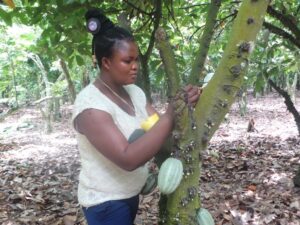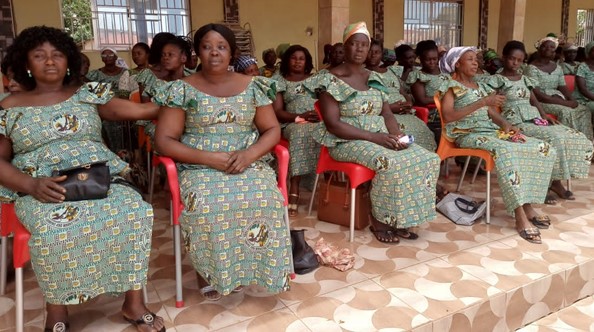The Ghana Cocoa Board (COCOBOD) has reiterated the need for cocoa farmers to embrace hand-pollination exercises to help boost productivity and enhance their income and livelihoods.
The COCOBOD is scheduled to start this year’s mass pollination in June. The programme’s objective is to increase farm yields and national production, as well as farmers’ income. COCOBOD has set a production target of one million metric tonnes as against last season’s achievement of 850,000MT, hence the call to support artificial pollination to cushion productivity.
The Techiman Cocoa District Officer, Emmanuel Fosu Nkueh, said mass pruning and application of liquid fertiliser will precede the human-induced cross-fertilisation programme across cocoa production areas in the country.
Cocoa mass hand-pollination was rolled out in 2017 to enhance productivity. The programme is suitable for farms with hybrid cocoa trees aged between eight to 20 years. Targetted farms as well as the surrounding ones must not be infested with the cocoa swollen shoot virus disease (CSSVD).

“This year in the Techiman district, a total of 5,017 hectares was covered under the mass pruning programme. In the upcoming mass pollination exercise, 20% of the pruned farms will be selected while individual farmers are encouraged to replicate the programme. Farmers must bear in mind that hand-pollination is preconditioned by applying fertiliser to boost healthy flowering and avoid flower-abortion after pollination,” he said.
Mr. Nkueh was speaking on the sidelines of farmers’ rally organised by Techiman branch of Brong Ahafo Women Cooperative Cocoa Farming and Marketing Union (BAWCOF) at Techiman, Bono East Regional capital. BAWCOF is a mother union of 93 different women groups with close to 6,000 members.
Addressing the rally, Chairperson of BAWCOF, Martha Addia, said the rationale behind the union’s formation is to mobilise and promote interests of women in cocoa farming in order to attract the needed support from stakeholders.
“Women in the cocoa farming space don’t have equal access to opportunities like our male counterparts, especially when it comes to allocation of inputs and other resources. We don’t intend to compete with our husbands and brothers, but ultimately to support them achieve a common goal of optimising returns from cocoa farming,” she said, adding that the union has also initiated steps for introducing members to alternative livelihood activities such as maize production.










